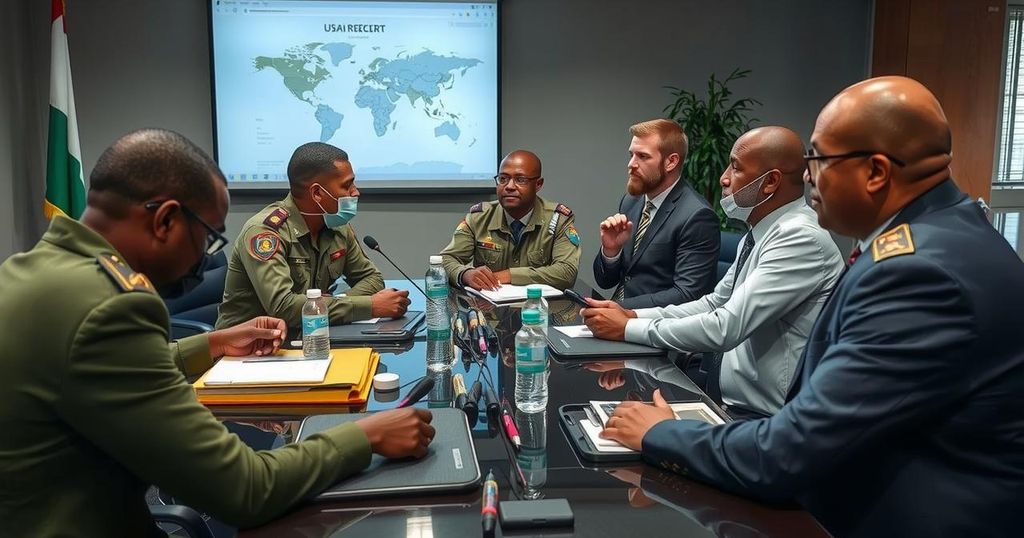USGS Engages with Namibia and Botswana on Water Security Challenges

The USGS conducted a mission to Namibia and Botswana to evaluate critical water security challenges posed by severe drought. As part of the U.S. Ambassador’s Water Experts Program, USGS representatives engaged with various stakeholders in the water sector and discussed potential areas of collaboration to enhance understanding and management of water resources through data utilization and improved monitoring.
The United States Geological Survey (USGS) undertook an important mission to Namibia and Botswana from September 10 to September 27, 2024, to explore the pressing issue of water security in both nations as part of the U.S. Ambassador’s Water Experts Program (AWEP). USGS representatives, including John Lane, the Science Advisor for International Water, and Molly Wood, the Chief of the Hydrologic Networks Branch, engaged with various stakeholders within the water sector, which encompassed personnel from governmental ministries, bulk water suppliers, municipal utilities operators, multinational water commissions, and private consulting firms, alongside members of the U.S. Embassy staff. Namibia and Botswana face semi-arid to arid climatic conditions and are currently grappling with severe drought, which has led to significant strains on water resources needed for drinking, livestock, mining, and industrial operations. In light of these challenges, the governments of both countries have expressed a need for technical assistance aimed at enhancing the understanding and utilization of their water resources. The meetings focused on exploring ways in which USGS could assist the agencies of Namibia and Botswana in the following key areas: 1. Utilizing remote sensing datasets to gain a better comprehension of water availability; 2. Enhancing hydrologic monitoring networks to ensure greater access to hydrologic data that can inform critical water management decisions; and 3. Collaboratively creating scientific strategies to more effectively manage groundwater and surface water resources amid the ongoing drought crisis. The DOI ITAP also shared updates regarding this visit on their official social media platforms, indicating the importance of this mission for international water management efforts.
Water security has emerged as a significant global challenge, particularly in regions such as southern Africa where Namibia and Botswana are located. Both countries exhibit semi-arid climates compounded by the exacerbating issue of drought, which places a substantial strain on their water resources. Given the critical nature of these resources for various sectors including drinking water, agriculture, and industry, there is an urgent need for technical and scientific collaboration to enhance water management practices. The U.S. Ambassador’s Water Experts Program (AWEP), administered by the Department of Interior International Technical Assistance Program (DOI ITAP), aims to address such challenges through expert assessments, data analysis, and capacity building in affected countries.
In summary, the USGS’s recent visit to Namibia and Botswana underscores the collaborative efforts aimed at addressing acute water security issues in the face of devastating drought conditions. By engaging with local stakeholders and proposing innovative solutions for hydrologic monitoring and data utilization, the USGS aims to enhance water resource management in these countries. Continued partnership and support from the U.S. government will be crucial in enabling Namibia and Botswana to effectively address their water scarcity challenges. The efforts outlined during the visit reflect a concerted focus on not only understanding water availability but also on implementing robust strategies to manage these vital resources sustainably in the long term.
Original Source: www.usgs.gov






